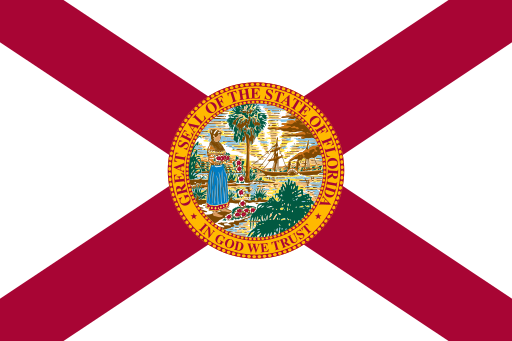Florida Education Champions, sponsors of a sports betting initiative, have submitted 194,287 valid signatures as of Dec. 17.
The measure would authorize sports betting at sports venues, pari-mutuel facilities, and online in Florida. The Florida State Legislature would need to pass legislation to implement the constitutional amendment such as providing for licensing, regulation, consumer protection, and taxation. The amendment would require all online sports betting tax revenue to be dedicated to the Educational Enhancement Trust Fund of the Department of Education. Online sports betting could be conducted by (a) Native American tribes and (b) entities that have existed for at least one year and that have conducted sports betting in at least 10 other states. Such entities could begin conducting sports betting no later than eight months after the amendment is effective. Other entities or organizations could conduct sports betting no sooner than 20 months after the amendment is effective if authorized by state law.
Florida Voters in Charge, sponsors of a casino gaming expansion initiative, had submitted 282,529 valid signatures as of Dec. 17. The initiative would expand casino gaming in Florida by allowing businesses with active cardroom licenses to offer casino gaming as long as they are (a) located 130 miles in a straight line away from any of the seven Seminole tribal casinos and (b) expend $250 million in capital investments (new development and construction costs on the gaming complex) within three years after submitting a notice of commencement of casino gaming.
To qualify for the 2022 ballot, campaigns must submit 891,589 valid signatures. Initiative signatures must be verified by February 1, 2022, and must be submitted to county officials long enough before that date to allow for the verification process. County supervisors of elections have a maximum of 30 days to verify signatures and submit them to the secretary of state. Campaigns are targeting Dec. 30 as their final signature submission date. Florida also has a signature distribution requirement, which requires that signatures equaling at least 8% of the district-wide vote in the last presidential election be collected from at least half (14) of the state’s 27 congressional districts.
Proposed measures are reviewed by the state attorney general and state supreme court after proponents collect 25% of the required signatures across the state in each of one-half of the state’s congressional districts (222,898 signatures for 2022 ballot measures). After these preliminary signatures have been collected, the secretary of state must submit the proposal to the Florida Attorney General and the Financial Impact Estimating Conference (FIEC). The attorney general is required to petition the Florida Supreme Court for an advisory opinion on the measure’s compliance with the single-subject rule, the appropriateness of the title and summary, and whether or not the measure “is facially valid under the United States Constitution.” So far, only Florida Voters in Charge have met the signature requirement to qualify for this review.
According to campaign finance reports covering through Nov. 30, $100.27 million had been raised by committees surrounding the initiatives. Florida Voters in Charge, sponsors of the initiative to expand casino gaming, reported $28.06 million in contributions. Las Vegas Sands Corp gave $27.06 million and Poarch Creek Band of Indians gave $1 million. The committee reported expenditures totaling $27.45 million.
Florida Education Champions, sponsors of the sports betting initiative, reported $37.09 million in contributions ($22.7 million from DraftKings and $14.38 million from FanDuel) and $26.77 million in expenditures.
Standing up for Florida registered to oppose both initiatives. The Seminole Tribe of Florida gave $10 million to the committee. Seminole Gaming gave $10 million to another committee, Voters in Control, which then gave that $10 million to Standing up for Florida.
Politico reported on November 29, 2021, that the Seminole Tribe of Florida was “paying petition gathering firms to not work in Florida during the 2022 midterms as part of an effort to block rival proposed gaming constitutional amendments — a strategy that also includes running a separate informal signature gathering operation and hiring workers that interfere with other petition gatherers.”
Seminole spokesperson Gary Bitner said the tribe “assembled the best team of political consultants in the country [and is] currently engaged to oppose multiple outside interests that have initially invested a combined $60 million in PAC money to hire more than a thousand people to fight the Tribe’s success.”
Las Vegas Sands (donors to Florida Voters in Charge, supporters of the casino expansion initiative) filed a lawsuit asking a judge to order the Seminole Tribe to stop the petition blocking effort, but later withdrew their request for an emergency injunction, saying, “We will not allow any distractions, legal maneuvers or the tribe’s egregious blocking tactics to distract us from that mission. Therefore, we have decided to withdraw our request for an emergency injunction so our team members can remain focused on gathering signatures and not be held up in the courtroom. With our effort reaching this critical stage and our signature gathering progress in full swing, we will not be deterred by legal maneuvers seeking to bring our on-the-ground team members out of the field and tie them up in legal proceedings.”
The Florida State Legislature referred two constitutional amendments to the 2022 ballot. One would abolish the Florida Constitution Revision Commission and the other would allow the state legislature to pass laws prohibiting taking flood resistance improvements into account when calculating a property’s assessed value for property tax purposes.
A total of 78 measures appeared on the Florida statewide ballot between 2000 and 2020, including six measures that appeared on the statewide ballot in odd-numbered years. Of the measures, 71.79% (56 of 78) were approved by voters and 28.21% (22 of 78) were defeated. From 2000 to 2020, an average of about seven measures appeared on the ballot during even-numbered years in Florida.
Additional reading:


